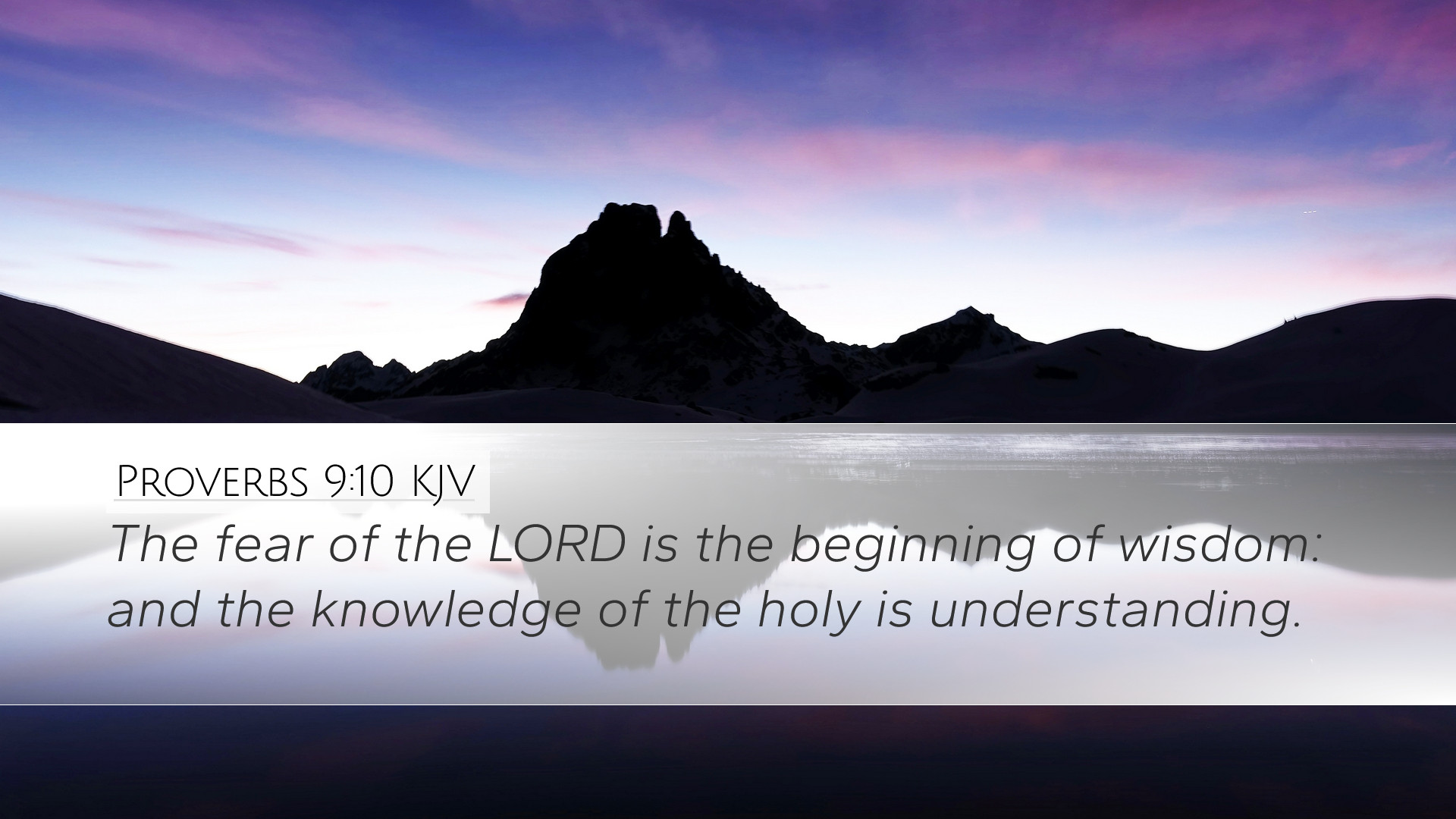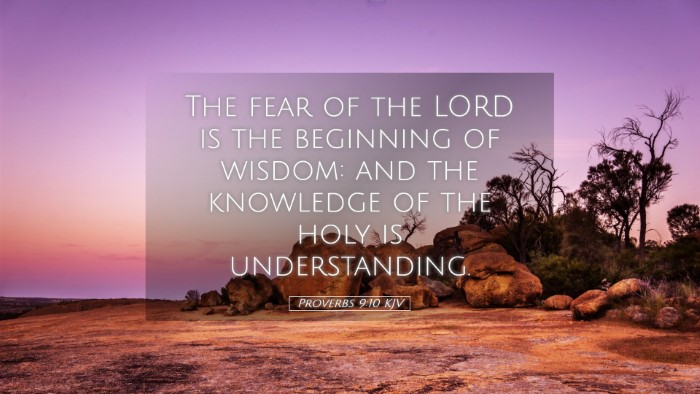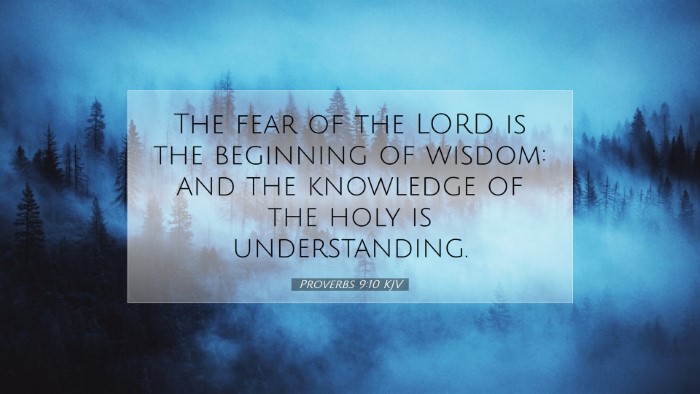Commentary on Proverbs 9:10
Verse Text: "The fear of the LORD is the beginning of wisdom: and the knowledge of the holy is understanding."
Introduction
This verse from Proverbs encapsulates the foundational principle of wisdom in biblical teaching. The fear of the Lord serves as the initial step towards acquiring true knowledge and discernment. Notably, this verse highlights the importance of reverence for God as a precursor to wisdom—a theme echoed throughout Scripture.
Insights from Commentaries
Matthew Henry
Matthew Henry emphasizes that the "fear of the LORD" denotes a deep reverence, awe, and respect for God. According to him, this fear is not merely terror, but rather a profound recognition of God's majesty, holiness, and power. Such fear leads individuals to acknowledge their own limitations and dependence on God. Henry notes:
- The fear of the Lord is the beginning of wisdom—this implies that without this fear, true wisdom cannot be achieved.
- The knowledge of the holy refers to understanding God’s nature. This knowledge is not academic or superficial; rather, it is a transformative understanding that guides ethical living and decision-making.
Albert Barnes
Albert Barnes expands on the significance of "fear" as it pertains to wisdom. Barnes states that this fear reflects a reverential trust that compels believers to live in obedience to God's commandments. His insights include:
- Wisdom begins with the acknowledgment of God's sovereignty and our need for Him. This acknowledgment plays a crucial role in human understanding.
- The phrase "knowledge of the holy" suggests that understanding God's attributes—such as His justice, mercy, and love—leads to a deeper insight into both divine and moral truths.
- As wisdom is rooted in a relationship with God, it serves believers in making ethical choices that reflect God's character in their lives.
Adam Clarke
Adam Clarke delves into the implications of this verse within the context of Proverbs. He notes the duality of "fear" as it relates to wisdom and understanding. Clarke’s observations include:
- The expression "beginning of wisdom" indicates that wisdom is a journey, starting with reverence for God before proceeding to practical application in life.
- Clarke points out that true understanding is achieved through a relationship established on a foundation of respect for the holy nature of God, leading to moral and intellectual growth.
- This process is both spiritual and practical, impacting every aspect of life, including relationships, work, and personal conduct.
Theological Implications
The implications of this verse are profound for both individual believers and the collective church. The fear of the Lord is essential for spiritual maturity and ethical living. Recognizing God's authority and character shapes how believers engage with the world around them. Without this foundational fear, wisdom remains elusive, and the pursuit of knowledge can lead to pride and folly.
Application for Pastors and Educators
For pastors and educators, Proverbs 9:10 serves as an essential scriptural guide in teaching congregants and students about the nature of wisdom. Emphasizing the relational aspect of knowledge—centering on God—can provide a transformative framework for understanding other biblical truths. Encouraging a lifestyle of reverence for God can lead individuals toward greater insight and moral clarity.
Reflections for Students and Scholars
Students and scholars of the Bible are invited to consider how the fear of the Lord influences their academic pursuits as well. This verse calls for an approach to knowledge that honors God, advocating a humble attitude in the quest for truth. The continual examination of God's character reveals deeper layers of understanding in theological studies.
Conclusion
In conclusion, Proverbs 9:10 serves as a vital reminder of the essential starting point for wisdom—an authentic fear of the Lord. Through insights from respected commentators such as Matthew Henry, Albert Barnes, and Adam Clarke, we are encouraged to develop an understanding that encompasses reverence for God and a commitment to living out His principles in our lives. Recognizing God as the source of all wisdom shapes our character, informs our decisions, and ultimately transforms our understanding of what it means to live in alignment with the divine will.


